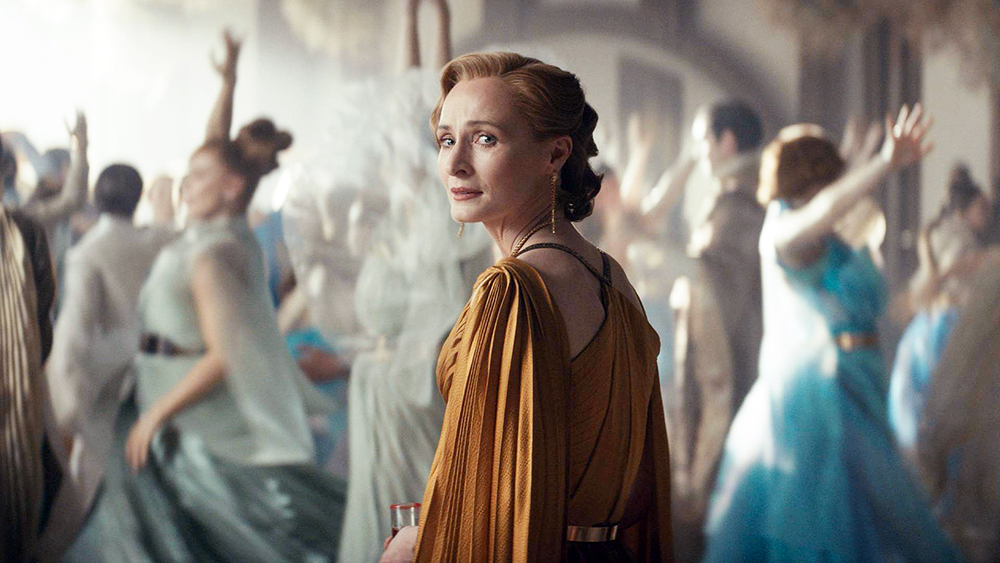I recently attended a lecture by Timothy Snyder, professor of history at Yale University. Snyder’s specialty is the study of the Soviet Union and Eastern Europe in the 20th century. His 2017 book, On Tyranny, was essential reading during the first Trump administration, and earlier this year, it topped the New York Times Bestseller list. If you’ve recently heard the phrase “don’t obey in advance,” that’s Snyder’s work.
His new book, On Freedom, asks hard questions about the way we use the word “freedom” in America. Too often, we think of freedom only as the absence of anyone telling us what to do. But it’s much more than that. Freedom is not merely individualistic in nature. There are times when banding together with other people will make both us and them more free. The American Revolution is one example. People with diverse interests from diverse places banded together to throw off the chains of monarchy and prevent any one person from ever having that much power over them again.
George Lucas called the good guys in 1977’s Star Wars the Rebel Alliance. The bad guys were the Galactic Empire. The names weren’t important. He just needed an excuse for lasers to go pew pew. Sure, Obi-Wan Kenobi was fighting to restore the Old Republic, but his number-one ally was Princess Leia, who was royalty. And where did this plucky group of rebels get a fleet of expensive-looking spaceships? Who cares? It’s a story about space wizards trying to get their mojo back.
Lucas himself was the first to realize he had half-accidentally created a political story, and the prequel trilogy is really about how democracies die. In the Disney era, Rogue One stood apart for its glimpse into what everyday life was like under the rule of Emperor Palpatine. When Tony Gilroy, who was on Rogue One’s creative team, continued the story with Alliance operative Cassian Andor (Diego Luna) on Disney+, it was as much about how revolutions begin in authoritarian regimes as it was about a street hustler who finds a purpose in life.
Season 2, which premiered last week on Disney+, leans into the ensemble cast Gilroy created and adapted. This season is unique, in that its twelve 30-minute episodes are being released three at a time, with each batch telling a complete story and then skipping ahead one year. From the very first scene, Gilroy and his crew show they’re taking Star Wars to an emotional place it has never been before. Cassian has infiltrated Sienar Fleet Systems to steal an advanced TIE fighter prototype. As she is handing him the keys to the ship, the young tech who has helped him (Rachelle Diedericks) asks, “If I die today, will it be worth it?”
Yes, Cassian assures her; no matter what happens, she’s made a decision to be free in the face of oppression. Then he leaves her to her fate. It’s a brilliant bit of writing, revealing Cassian’s moral calculus. Many more people will be faced with the same bad set of choices. On the prosperous world Chandrila, Senator Mon Mothma (Genevieve O’Reilly) is facing the consequences of the deals she made to finance the Alliance to restore the Republic. She’s giving her daughter Leida (Bronte Carmichael) away in a loveless arranged marriage to the son of a shady oligarch. It’s the social event of the season, which means Luthen (Stellan Skarsgård), the deep-cover Rebel leader, can use it as an excuse for a visit. Meanwhile, Mothma’s own marriage is falling apart, her daughter hates her, and her banker Tay (Ben Miles) is considering ratting her out to the Empire.
The most chilling sequence in these first three episodes is a boardroom meeting. Orson Krennic (Ben Mendelsohn) has assembled a secret team of Imperial brass, including ISB investigator Dedra Meero (Denise Gough). Under the guise of “energy independence,” Krennic plans to mine the peaceful planet Ghorman, famous for its fine silk exports, for the enormous quantities of minerals it will take to build the Death Star. The problem is, how to remove the population without causing too much of a stir. The bureaucrats calmly pitching genocidal ideas is a reference to the Wannsee Conference, where the Nazis planned the Final Solution. By taking the question “Where did the Rebellion come from?” seriously, Gilroy has elevated this space fantasy into a work that’s sadly relevant to our moment. What is freedom? When push comes to shove, how hard will you fight, how far will you go, for freedom?
New episodes of Andor premiere Tuesday nights on Disney+.
